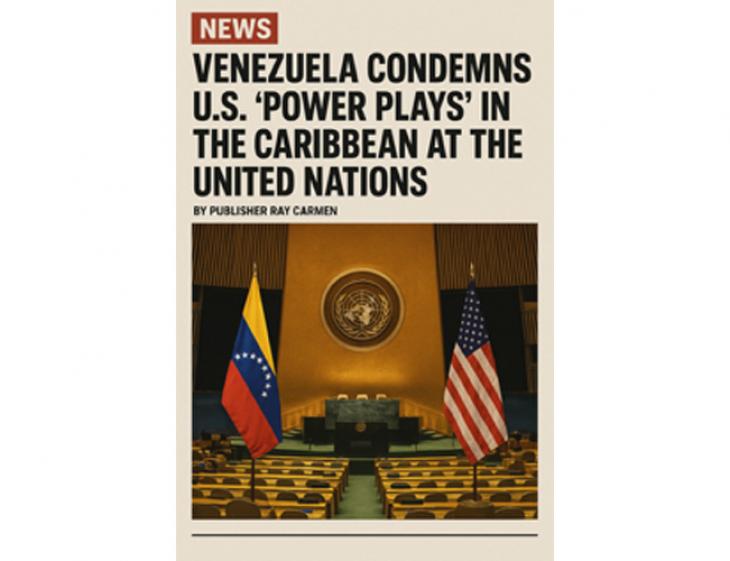
By Publisher Ray Carmen
In a fiery address that rippled across the diplomatic floor of the United Nations, Venezuela has condemned what it calls “U.S. stiles of interference and domination in the Caribbean region.”
The statement, delivered by Venezuelan Foreign Minister Yván Gil, accused Washington of “manipulating Caribbean partnerships through coercive economic measures and political intimidation,” a charge that reignites long-simmering tensions between the two nations.
“The Caribbean is not a chessboard for foreign powers,” Gil declared to a visibly divided assembly. “It is a community of sovereign nations whose dignity must never be compromised for profit or influence.”
The remarks drew both applause and unease — especially among smaller island states that depend heavily on American aid and trade. Analysts noted the sharpness of Venezuela’s tone, interpreting it as both a direct challenge to U.S. policyand a bid to court solidarity among Caribbean neighbours weary of great-power politics.
For decades, the Caribbean has been a stage for economic and ideological tug-of-war between Washington and Caracas, particularly over issues of energy, trade, and democratic governance. Venezuela, once a cornerstone oil partner for many islands, has sought to rebuild influence after years of sanctions and isolation.
At the UN, Gil framed the U.S. approach as “neo-colonial in design and destabilizing in effect,” urging Caribbean leaders to “stand united in independence, cooperation, and respect.”
While the U.S. delegation dismissed Venezuela’s remarks as ‘baseless rhetoric,’ the speech has nonetheless stirred conversation across the region — reviving questions about sovereignty, dependence, and the new geopolitics of the Caribbean Sea.
As one Caribbean diplomat privately commented, “It’s not about choosing sides anymore — it’s about choosing dignity.”
Whether this marks a turning point or another round of diplomatic sparring remains to be seen. But one thing is certain — the Caribbean is watching, and the world is listening.




